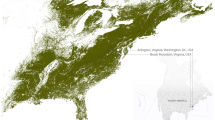
Overview
- Approaches the complex topic of territoriality on Florida’s beaches
- Offers a theoretical and practical exploration of the beach as space and place
- Utilizes the lens of territoriality and field-based participant cartographic mapping
Access this book
Tax calculation will be finalised at checkout
Other ways to access
About this book
This book offers a theoretical and practical exploration of the beach as space and places unique disciplinary lenses (Political Science and Geography). If we accept that what one possesses, one has a claim to, becoming property, then how that possession is enforced, socially, makes all the difference in defining what constitutes territoriality. Morgan and his colleagues have carried out various studies and applied various methods to study the developing coast of Florida. From these efforts, we compare the different regions of the State (e.g., Florida panhandle vs. South Florida) in terms of local beach culture and economics to unpack the topic of tension between beach property and access using firsthand accounts in many cases. This book approaches the complex topic of territoriality on Florida’s beaches from multiple perspectives but related methods involving time geography, a public space index, participatory mapping/cartography, and transboundary viewsheds. This analysis illustrates the fruitfulness of conceptualizations of property that are complex, multiplicative, and evolving. It calls for a recognition of human rights to the commons -- both now and in the future. And it highlights the constructed nature of public space - as a space that provides meaning through bodily performance and encounter.
Approaches the complex topic of territoriality on Florida’s beaches from methods of participatory mapping/cartography and performance art.Offers a theoretical and practical exploration of the beach as space and place.
Utilizes the lens of territoriality and field-based participant cartographic mapping to understand better how the developed shoreline is territorialized.
Similar content being viewed by others
Keywords
Table of contents (8 chapters)
Authors and Affiliations
About the authors
Dr. Derek Morgan is an Associate Professor of geographic information science at the University of West Florida. Morgan has published several scholarly articles on topics within to domain of urban and political geography ranging from studies of cartographic representation of mobility in crime mapping, participatory mapping, and legislative redistricting. Morgan, who has degrees in economics, management information systems, and geography, is an active member the Association of American Geography. Morgan’s work has been published in Transactions in GIS, Papers in Applied Geography, Journal of Urban Design, and other places. Morgan’s recent review of Andrew W. Kahrl’s book entitled Free the Beaches: The Story of Ned Coll and the Battle for America’s Most Exclusive Shoreline by was recently published in the Journal of Historical Geography.
Dr. Jocelyn Evans, Professor of government and Interim Director of the Kugelman Honors Program at the University of West Florida, teaches courses on American political institutions, democratic theory, the social meaning of civic space, architecture and democracy, and research methods. She has published several books and scholarly articles that explore congressional behavior, political culture, and political science education. Evans is the author, co-author, or editor of several books, including: Women, Partisanship, and the Congress (Palgrave 2005), One Nation Under Siege: Congress, Terrorism, and the Fate of American Democracy (University Press of Kentucky 2011), Congressional Communication in the Digital Age (Routledge 2017), and Heritage Wars and the Road to Reconciliation: Approaching the Problem with Confederate Memory from Many Directions (University Press of Florida forthcoming). Her best-selling interactive webtext, Central Ideas in American Government, is now in its 10th edition with Soomo Publishing and is coauthored with Kristy Michaud.
Bibliographic Information
Book Title: Participatory Mapping of Territoriality Across Florida’s Beaches
Authors: John D. Morgan, Jocelyn Evans
DOI: https://doi.org/10.1007/978-3-030-97315-5
Publisher: Springer Cham
eBook Packages: Earth and Environmental Science, Earth and Environmental Science (R0)
Copyright Information: Springer Nature Switzerland AG 2022
Hardcover ISBN: 978-3-030-97314-8Published: 02 September 2022
Softcover ISBN: 978-3-030-97317-9Published: 03 September 2023
eBook ISBN: 978-3-030-97315-5Published: 01 September 2022
Edition Number: 1
Number of Pages: XIV, 100
Number of Illustrations: 8 b/w illustrations, 31 illustrations in colour
Topics: Geographical Information Systems/Cartography, Common Property and Land Law, Tourism Management, Economic Geography



